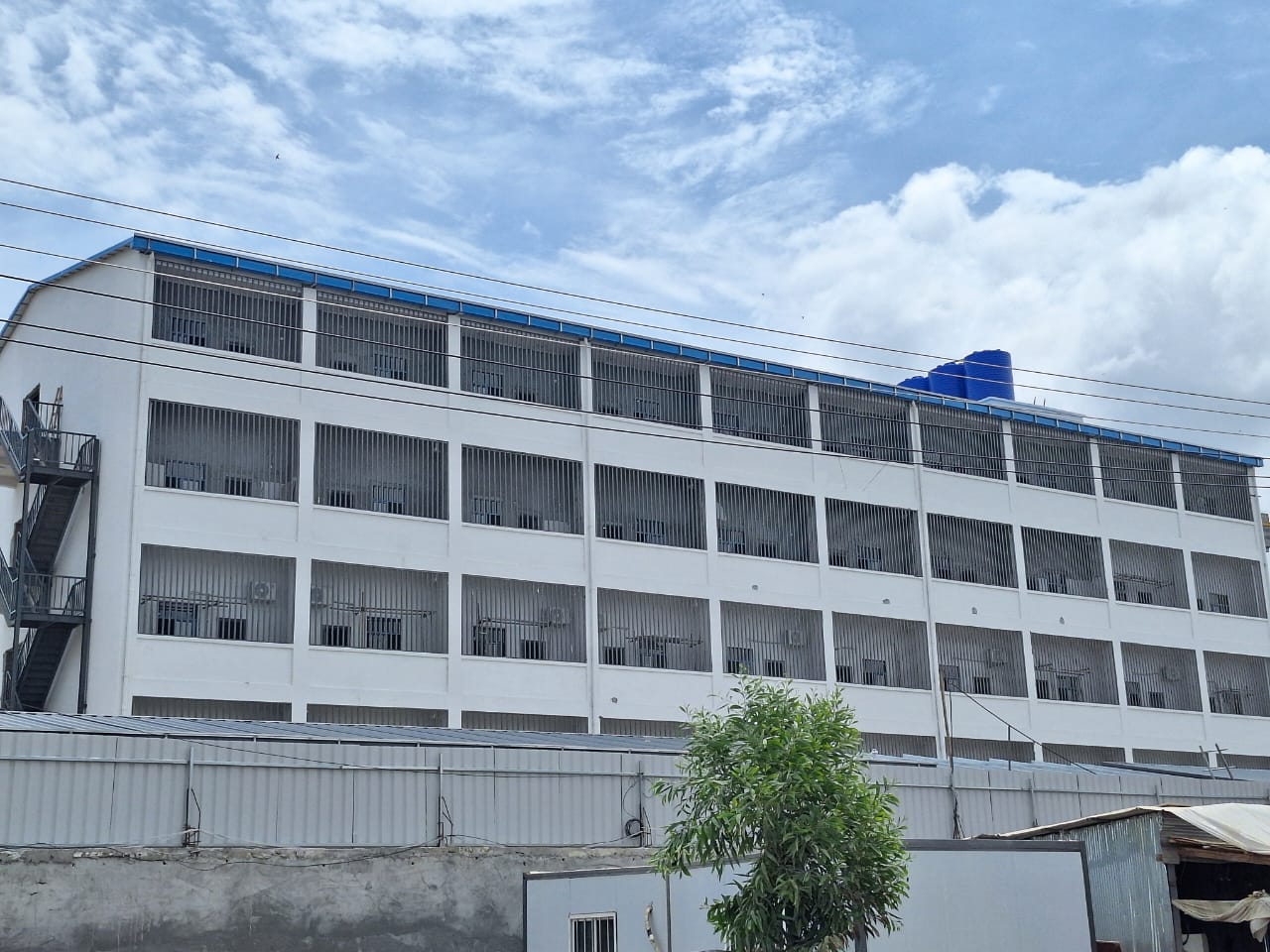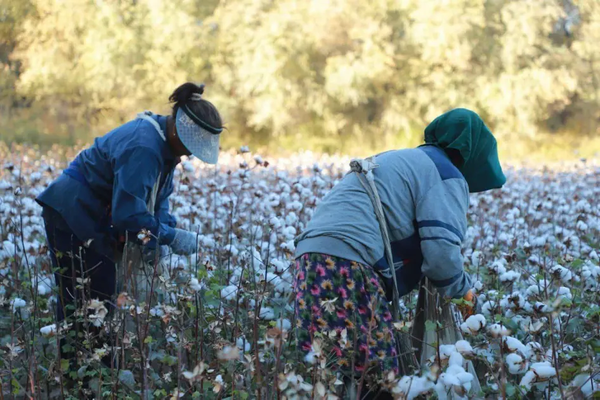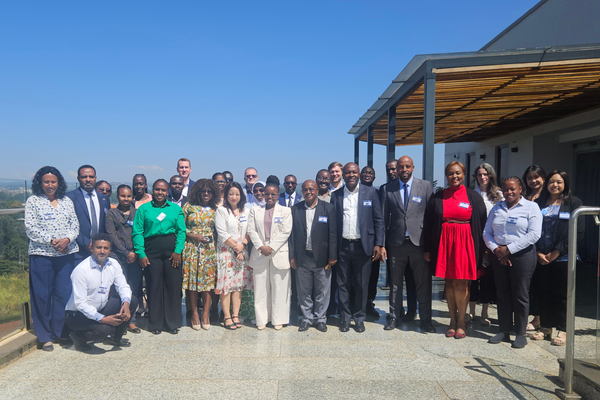Scamming operations relocate to Cambodia as China moves to protect its borders
Cambodia CTIP responds to a marked increase in the country’s online scamming compounds, GI-TOC examines the Palermo Convention’s impact, and Amnesty International finds forced labour indicators at Carrefour sites in Saudi Arabia.

Cambodia has experienced significant growth in online scamming operations and related human trafficking over the past 12 months, as Myanmar-based sites have relocated following a crackdown by Chinese authorities on compounds along its border, reports Cambodia CTIP in a new fact sheet.
In 2021 and 2022, the growth in Cambodia’s online scam industry was mirrored by the expansion of scamming operations – largely led by Chinese organized crime groups – into the ethnic enclaves of Myanmar’s Karen and Shan States and the Golden Triangle Special Economic Zone in Laos. However, in 2023, as the threat to Chinese border security grew, the expansion into northern Shan State prompted a prolonged series of Chinese armed offensives to both detain Chinese criminals and rescue and repatriate Chinese trafficking victims.
Many scam operators in Myanmar chose to relocate to Cambodia, which offered a far safer operating environment – to date, no senior scamming operators have been arrested – and a wide variety of locations, all connected by functioning infrastructure and financial systems. Through early and mid-2024, Cambodia CTIP received reports of this relocation, some of it involving the wholesale shifting of entire operations and some involving movements confined to management or owners.
Reports of newly constructed scamming compounds in areas of Cambodia previously not identified as hotspots seem to track with a general assessment that the industry has grown significantly in the country in the past 12 months and that this growth is linked to China’s crackdown in Myanmar. Cambodia CTIP, an activity implemented since March 2021, estimates that the number of scamming sites currently operating throughout the country is at least 350. These sites rely on the largely involuntary labour of an estimated 150,000 people from at least 22 countries, including China, Vietnam, Indonesia, India, and Bangladesh, at a conservative estimate.
Enabling this rise is the alleged complicity of senior business people and political elites, who own many of the properties on which scam centers have been built, reflecting business relationships between organized crime groups and influential Cambodian property owners. It’s been widely reported from multiple sources, including international law enforcement experts, that Cambodia’s authorities are reluctant to mount a credible response due to the complicity of senior officials and prominent oligarchs, Cambodia CTIP says.
Furthermore, investigative efforts by journalists and researchers, both inside and outside of Cambodia, shed light on what Cambodia CTIP has also learnt over the past year – that one of the leading money “gateways” for laundering criminal proceeds from online scamming in the Mekong sub-region is Cambodia-based payment platform “HuiOne”. Banned from operating in China, HuiOne offers the Chinese criminal diaspora in Southeast Asia a suite of financial services, including the conversion of illicit proceeds into U.S. dollars and Chinese Yuan holdings. However, these reports have had no discernible effect.
Recognizing the Cambodian Government’s reluctance to collaborate with external partners in addressing this issue, Cambodia CTIP has opted to implement a series of activities that rely on local CSOs, external INGOs, and consultants. It has also partnered with Caritas Cambodia, an NGO operating the country’s sole residential center providing comprehensive services for non-Cambodian and Cambodian victims of forced online scamming, and with Humanity Research Consultancy to provide specialized access to Chinese-speaking victims of trafficking in Cambodia and to gather unique information on trafficking developments and trends. It has also held informational workshops for NGOs, INGOs and UN agencies to discuss the expanding profile of the country as a destination for foreigners trafficked into the online scamming industry.
Since January, it has also partnered with Freedom Collaborative to create an online Trafficking for Forced Criminality Response Working Group, which allows NGOs and other stakeholders in the Southeast Asia region to share information and updates. Members collaborate on case referrals, share intelligence to trigger actions against scam operations, and develop practical recommendations for policymakers and other stakeholders. The benefits of this collaborative approach became clear recently when two group members worked together to urgently warn Singapore law enforcement of a scam in progress – rapid intervention that significantly reduced the impact of the crime.
In an effort to support the stakeholders who are or who should be involved, Freedom Collaborative and the Regional Support Office of the Bali Process teamed up earlier this year for a roundtable, bringing together civil society and other experts to evaluate the progress made so far and to discuss actionable ideas. The findings informed our forthcoming joint report, which assesses where we stand in terms of progress and outlines the priorities identified by civil society, along with practical recommendations for intervention for all relevant stakeholder groups.
Here’s a round-up of other noteworthy news and initiatives:
A report from the Global Initiative Against Transnational Organized Crime (GI-TOC) assesses the implementation and impact of the Palermo Convention, as new challenges emerge and transnational networks continue to expand. The report highlights key obstacles to effective implementation, including inconsistencies in national legislation, a lack of centralized data, and delays and restrictions in the convention’s Independent Review Mechanism (IRM).
Workers from Nepal, India and Pakistan at Saudi Arabian sites franchised by French retail giant Carrefour face conditions of forced labour including excessive working hours, wage theft and squalid living conditions, reports Amnesty International. Almost all those interviewed said they were lied to or misled by recruitment agents about the nature of the job, or tricked into believing they were being hired directly by international companies. Carrefour says it has launched an investigation.
Three Rohingya refugees have died and at least ten were taken to hospital in a critical condition after being found in a remote area of southern Thailand. Human Rights Watch has called for the Thai Government to undertake a credible investigation into the case, and provide survivors with medical care, asylum screening and assistance. Preliminary accounts suggest the group had been pressed into overcrowded refrigerated cargo trucks then removed en route to the Malaysian border.
Proposals for the U.S. Department of Labor on protecting children from dangerous work are set out in a new report from Governing for Impact, the Economic Policy Institute, and the Child Labor Coalition. They include expansion of the list of occupations deemed too hazardous for under-18s, and regulations to prohibit employers from scheduling certain child workers for overnight shifts.
A briefing book prepared by the Inter-Parliamentary Taskforce on Human Trafficking (ITHT) serves as a practical guide for legislators on how to work together to educate, advocate and legislate to end orphanage trafficking, through a combination of global partnerships and domestic action. The ITHT is the first global consortium to convene leading lawmakers, government leaders, stakeholders and lived-experience experts to stop human trafficking through policy solutions.
This article examines the implications of the Corporate Sustainability Due Diligence Directive (CSDDD) and the EU Forced Labour Regulation for businesses and their lawyers, noting that human rights have evolved into a key business risk, with the CSDDD in particular having board-level interest “particularly when it comes to the potential for reputational harm”.
The Global Fund for Children is hiring a Deputy VP of Programs to join its mission-driven team. This is a new role for a passionate and experienced leader, and the deadline for applications is 27 October.




